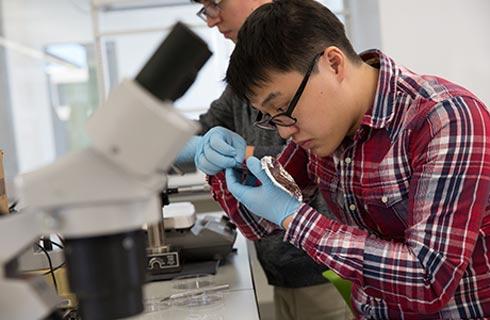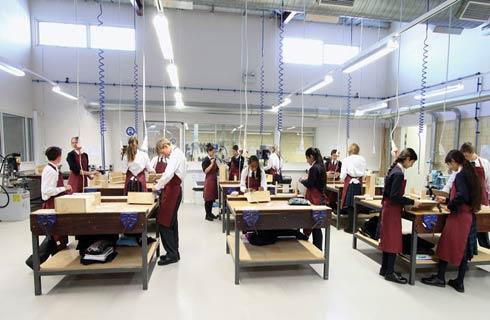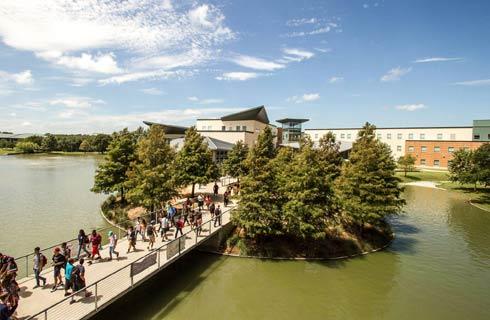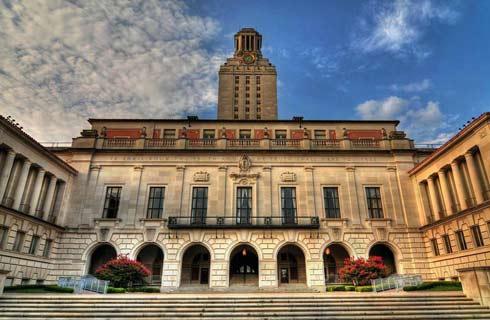Bachelor of Science in Integrated Energy Management - Integrated Energy Policy

学历文凭
Bachelor Degree

专业院系
环境研究

开学时间

课程时长

课程学费

国际学生入学条件
CWU requires an original, official transcript that shows a complete list of courses taken, grades received, and the number of credits awarded. The transcript should show the date of graduation (if you completed your studies) and any certificates, diplomas, or degrees received. Please note, for some countries, CWU may also need the official certificates and or diplomas of degrees received.
Application processes vary depending on cumulative GPA as outlined below:
Applicants with a 3.00 cumulative GPA or higher who have satisfied the State of Washington CADR requirements will be automatically admitted regardless of ACT or SAT scores. Applicants must still submit ACT or SAT test scores for placement in English and Math courses at CWU. A personal statement is not required.
Applicants with a 2.50-2.99 cumulative GPA who have satisfied the CADR and have a composite ACT score of ≥ 19 or combined SAT score of ≥ 1050 (or > 550 for Math and English) will be automatically admitted. A personal statement is not required.
Applicants with a 2.50-2.99 cumulative GPA who have satisfied the CADR and have a composite ACT score of < 19 or combined SAT score of < 1050 (or < 530 for Math or <560 for English) will be considered through CWU's comprehensive review process. A personal statement may is required.
Applicants with a cumulative GPA of 2.00-2.49 who have satisfied the CADR will be considered through CWU's comprehensive review process. A personal statement is required.
TOEFL score (525 for paper-based, 195 for computer-based, 71 for internet-based)
IELTS score of 6.0
Application processes vary depending on cumulative GPA as outlined below:
Applicants with a 3.00 cumulative GPA or higher who have satisfied the State of Washington CADR requirements will be automatically admitted regardless of ACT or SAT scores. Applicants must still submit ACT or SAT test scores for placement in English and Math courses at CWU. A personal statement is not required.
Applicants with a 2.50-2.99 cumulative GPA who have satisfied the CADR and have a composite ACT score of ≥ 19 or combined SAT score of ≥ 1050 (or > 550 for Math and English) will be automatically admitted. A personal statement is not required.
Applicants with a 2.50-2.99 cumulative GPA who have satisfied the CADR and have a composite ACT score of < 19 or combined SAT score of < 1050 (or < 530 for Math or <560 for English) will be considered through CWU's comprehensive review process. A personal statement may is required.
Applicants with a cumulative GPA of 2.00-2.49 who have satisfied the CADR will be considered through CWU's comprehensive review process. A personal statement is required.
TOEFL score (525 for paper-based, 195 for computer-based, 71 for internet-based)
IELTS score of 6.0
IDP—雅思考试联合主办方

雅思考试总分
6.0
了解更多
- 雅思总分:6
- 托福网考总分:71
- 托福笔试总分:525
- 其他语言考试:Duolingo English Test - 100
CRICOS代码:
申请截止日期:请 与IDP联系 以获取详细信息。
课程简介
The geopolitical conflicts over energy resources during the last decades have transformed the current energy landscapes at regional, national and global scales. These shifts in energy landscapes have made the management of energy resources more complex, the development of energy policy more important and controversial, and the innovation of energy technology front-page news. Whether it is finding new traditional sources of energy (e.g., oil, coal and natural gas) or developing alternative courses of energy (e.g., wind, solar, hydro power, geothermal) we need to understand that the world is so embedded in conventional sources of energy that policies and decisions regarding alternative sources of energy depend greatly on what happens in the fossil fuel market.<br><br>An interdisciplinary and integrated understanding of energy resources is integral to finding comprehensive solutions to the management of energy systems in today's rapidly changing world. A broad range of human, environmental, political, economic, and technological factors are at work shaping the future of current energy landscapes, and it is the mission of the Institute of Integrated Energy Studies (I2ES) to prepare students to be active participants in that emerging future. In doing so, the I2ES emphasizes critical thinking and applied approaches to analysis, while providing graduates with the skills necessary to deal with energy issues at scales ranging from local to global.
相关申请

预科

奖学金

实习机会

在校学习

跨境学习

校园授课-线上开始

在线/远程学习
本校相关课程
Bachelor of Science in Accounting

学历文凭
Bachelor Degree
下一个开始日期
课程费用总额
Bachelor of Science in Actuarial Science

学历文凭
Bachelor Degree
下一个开始日期
课程费用总额
Bachelor of Science in Apparel, Textiles and Merchandising

学历文凭
Bachelor Degree
下一个开始日期
课程费用总额
Bachelor of Arts in Art

学历文凭
Bachelor Degree
下一个开始日期
课程费用总额
Bachelor of Arts in Anthropology (62 Credits)

学历文凭
Bachelor Degree
下一个开始日期
课程费用总额
Bachelor of Science in Anthropology

学历文凭
Bachelor Degree
下一个开始日期
课程费用总额
其他相关课程
环境系统管理理学硕士[项目]

德克萨斯农工大学金斯维尔分校
泰晤士高等教育世界大学排名:

学历文凭
Masters Degree
下一个开始日期
课程费用总额
Master of Science in Environmental Studies - Sustainable Food and Farming

蒙大拿大学
泰晤士高等教育世界大学排名:

学历文凭
Masters Degree
下一个开始日期
课程费用总额
环境研究文学士[一般]

女王大学
泰晤士高等教育世界大学排名:

学历文凭
Bachelor Degree
下一个开始日期
课程费用总额
环境研究文学士-环境历史与区域研究

宾夕法尼亚大学
泰晤士高等教育世界大学排名:14

学历文凭
Bachelor Degree
下一个开始日期
课程费用总额
Bachelor of Science in Geology and Environmental Studies - Environmental Studies (uTrack Requirements)

田纳西大学
泰晤士高等教育世界大学排名:

学历文凭
Bachelor Degree
下一个开始日期
课程费用总额
Bachelor of Science in Environmental Studies - Environmental Policy

萨福克大学 - INTO USA
泰晤士高等教育世界大学排名:

学历文凭
Bachelor Degree
下一个开始日期
课程费用总额




